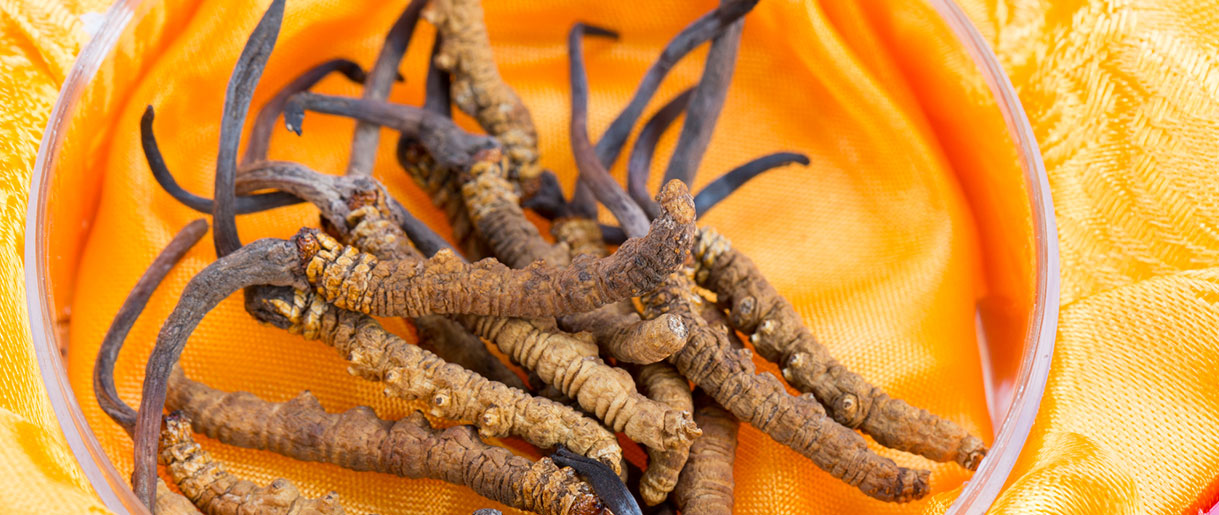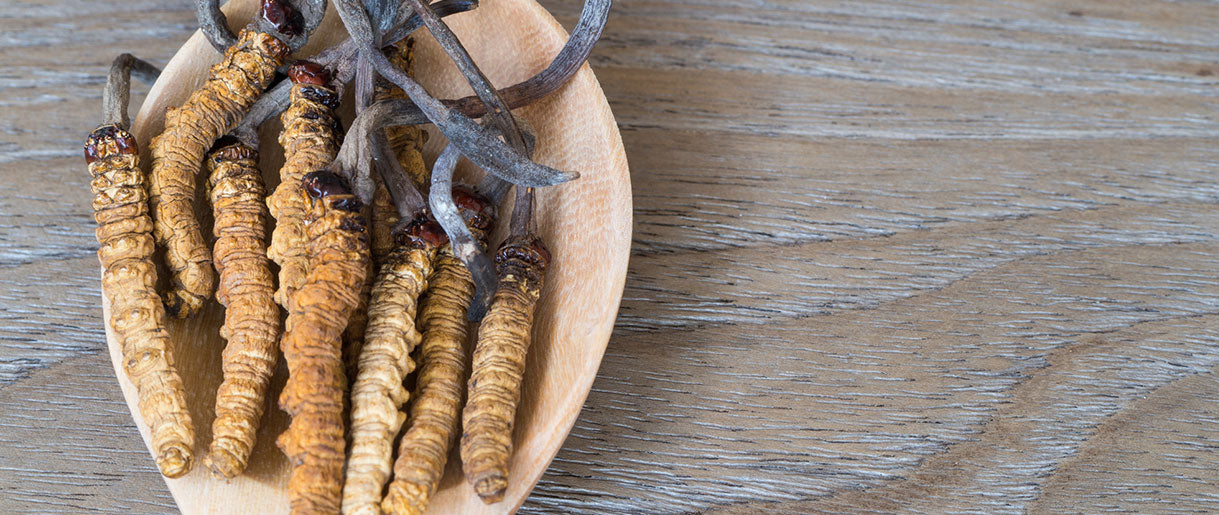Chaga and Cordyceps are two types of medicinal mushrooms renowned for their health benefits. Chaga, growing primarily on birch trees in cold climates, is loaded with antioxidants and may boost the immune system, potentially possessing anti-cancer properties. Cordyceps, known for its unique lifecycle, is often used to enhance athletic performance, support lung health, and show good anti-aging properties.
Both mushrooms can be consumed in various forms, including teas, powders, and capsules. However, sourcing these products from reputable suppliers and consulting with a healthcare professional before starting any new regimen is crucial.
Fungi have played significant roles throughout history as a food source and a powerful medicine. Among the pantheon of medicinal mushrooms, Chaga and Cordyceps have earned a special place, prized for their potent and diverse healing properties. Yet, despite their impressive credentials, these fungi remain underexplored in modern society. This article aims to demystify Chaga and Cordyceps, revealing the benefits they can offer and guiding you through their proper use.
The Mystical World of Mushrooms: An Overview

Tracing the Roots: A Brief History and Cultural Significance of Medicinal Mushrooms
Our journey begins thousands of years ago when ancient cultures discovered the potent powers hidden in simple fungi. The usage of medicinal mushrooms traces back to tribal societies and early civilizations worldwide.
In traditional Chinese and Ayurvedic medicine, mushrooms have been employed for their healing properties for millennia. For instance, Reishi mushrooms were deemed the "Mushrooms of Immortality," while the Pharaohs of Egypt believed Chaga bestowed strength and endurance.
Chaga and Cordyceps particularly stand out due to their extensive history of use. Siberian tribes brewed Chaga into a tea for endurance and gastrointestinal health, while traditional Chinese healers have used Cordyceps for everything from combating fatigue to improving respiratory health. This historical reverence set the foundation for today's growing interest in these remarkable fungi.
More Than Just a Meal: Culinary vs. Medicinal Mushrooms
Understanding the world of mushrooms requires us to distinguish between two main types: culinary and medicinal. Culinary mushrooms, like the commonly consumed white button, cremini, or portobello, are used primarily for their flavor and texture in meals. They offer some health benefits, such as a good source of dietary fiber and essential vitamins and minerals.
However, medicinal mushrooms like Chaga and Cordyceps inhabit a different realm altogether. While they can be consumed as food, their primary value lies in their impressive array of health-promoting compounds. These include polysaccharides, triterpenoids, antioxidants, and other bioactive compounds that exhibit various therapeutic effects, from boosting the immune system to potentially fighting cancer cells.
While all mushrooms have some nutritional value, medicinal mushrooms bring additional therapeutic benefits. However, their taste can be more potent and less universally appealing compared to culinary mushrooms, leading to their typical consumption in forms like powders, capsules, or brewed into teas.
This journey into the mystical world of mushrooms has only just begun. As we delve deeper into Chaga and Cordyceps, we'll further explore their unique properties, uses, and potential health benefits of medicinal mushrooms.
Getting Acquainted with Chaga: The Crown Jewel Among Functional Mushrooms

The Mystical Chaga Mushroom: Where it's Found and How it Grows
The Chaga mushroom (Inonotus obliquus) is a functional mushroom found primarily on birch trees in cold climates like Siberia, Northern Canada, Alaska, and some northern areas in the United States.
Chaga is unique, unlike many other types of mushrooms that grow a fruiting body under certain conditions. It resembles a large, blackened, woody growth or canker on the side of the birch tree, which is the fruiting body of the Chaga mushroom. The functional mushroom grows by absorbing nutrients from the birch tree over several years, allowing it to concentrate many beneficial active compounds.
Unpacking the Nutritional Profile of Chaga Mushrooms
Like other functional mushrooms, Chaga mushrooms are packed full of nutritional components. They contain a wide array of vitamins, minerals, and essential nutrients. Notably, Chaga is rich in antioxidants, polysaccharides, beta-glucans, and other bioactive compounds that give it powerful medicinal properties.
Health Benefits of the Chaga Mushroom: More Than Just a Functional Mushroom
Chaga mushrooms are well-known functional mushrooms that provide numerous health benefits. A key benefit of Chaga is its ability to support the immune system. Thanks to the beta-glucans, Chaga can help modulate the immune system, activating the white blood cells and ensuring the immune response functions optimally.
Beyond its immune-boosting potential, Chaga has anti-cancer properties. Some studies suggest that(1) the functional mushroom may inhibit cancer cell growth, although more research is needed to confirm these findings.
The Chaga mushroom's rich antioxidant content further contributes to its health benefits. These antioxidants help protect the body's cells from damage by free radicals, reducing inflammation and promoting overall health.
Harnessing the Benefits of Chaga: From Teas to Mushroom Coffee
To reap the benefits of Chaga, this functional mushroom can be consumed in several ways. A popular method is to make tea by simmering the Chaga in hot water. You can also find Chaga as a tincture or in supplement form.
Adding it to your morning coffee is an increasingly trendy way to enjoy Chaga. Mushroom coffee, particularly organic coffee enriched with Chaga, is becoming popular among health enthusiasts.
Adding Chaga to your organic coffee can be a great way to boost your intake of functional mushrooms. Chaga's flavor and taste complement coffee's natural taste, making each cup of mushroom coffee not just a caffeine boost but a superfood experience.
Safety First: Potential Side Effects and Precautions with Chaga
While Chaga is generally safe for most people, there are a few considerations to consider. Some people might experience allergic reactions to Chaga mushrooms. It's also important to source your Chaga from reputable suppliers to ensure it's free from contaminants.
It's also worth noting that due to its anti-inflammatory properties and impact on the immune system, individuals with autoimmune diseases or those on immunosuppressant medications should consult a healthcare professional before adding Chaga or any other functional mushrooms to their diet.
The Power of Cordyceps: The Energy Mushroom Among Functional Mushrooms

Unearthing Cordyceps: Where It's Found and Its Unique Lifecycle
Cordyceps, a group of functional mushrooms, are unlike any other in the fungi kingdom. The most renowned species are Cordyceps sinensis and Cordyceps militaris. They are predominantly found in the high-altitude regions of the Himalayas and other parts of Asia.
The lifecycle of Cordyceps is fascinating, if not a little gruesome. The Cordyceps grow by parasitizing insects and eventually replacing the host tissue. While wild Cordyceps like Cordyceps sinensis are rare and expensive, most commercially available products today are derived from the Cordyceps militaris species, which can be cultivated on grain-based substrates, ensuring they are sustainably and ethically sourced.
Unpacking the Nutritional Powerhouse of Cordyceps Militaris
Like other functional mushrooms, Cordyceps militaris is rich in nutritional components. It contains many vitamins, minerals, amino acids, and bioactive compounds. These include cordycepin, adenosine, and polysaccharides, all active compounds responsible for Cordyceps' medicinal properties.
Harnessing the Health Benefits of Cordyceps Sinensis and Cordyceps Militaris
Known as the "energy mushroom," Cordyceps boosts energy and is widely used to enhance athletic performance and fight fatigue.It is thought to increase blood flow and oxygen utilization, providing a natural energy boost. This makes Cordyceps a popular supplement among athletes and those with chronic fatigue. Cordyceps as a pre-workout supplement is also gaining popularity as more people seek maximum returns from their workout sessions.
In addition, Cordyceps has gained attention for its potential anti-aging properties. The antioxidants within these functional mushrooms reduce inflammation and oxidative stress, promoting cellular health and longevity.
Cordyceps also supports lung health, improving respiratory function and aiding in conditions like asthma. While the research on Cordyceps' anti-cancer potential is still in the early stages, some studies suggest(2) it could also have beneficial effects in this area.
From Teas to Capsules: How to Use Cordyceps
Cordyceps can be consumed in various forms, allowing you to harness its beneficial properties.Traditional species like Cordyceps sinensis are often brewed into tea, while more commonly available species like Cordyceps militaris can be found in powder or capsule form. Many people add mushroom powder to their morning coffee or smoothie to boost energy and mental clarity.
Mindful Consumption: Potential Side Effects and Precautions with Cordyceps
As potent as Cordyceps can be, consuming these functional mushrooms mindfully is essential. Potential side effects are rare but can include mild digestive upset. Also, Cordyceps should not be consumed before surgery because of their blood-thinning properties.
Cordyceps can stimulate the immune system, so people with autoimmune conditions should consult their healthcare provider before starting a Cordyceps regimen. Always ensure your Cordyceps, whether wild harvested or cultivated, are sourced from a reputable supplier to avoid contamination.
Chaga vs. Cordyceps: A Detailed Comparison

Unraveling the Health Benefits: Chaga vs. Cordyceps
While both Chaga and Cordyceps fall under the umbrella of medicinal or therapeutic mushrooms, they each bring unique health benefits. The main differences arise from the specific bioactive compounds found in each mushroom and their effects on the body.
Chaga mushroom, often called the "King of Mushrooms," is known for its high antioxidant content and potential immune-boosting properties. Research suggests it could have anti-cancer properties, primarily due to its beta-glucans and other compounds.
On the other hand, Cordyceps, native to the Tibetan plateau and other high-altitude regions, is highly valued for its energy-boosting and performance-enhancing properties. It's often used by athletes or individuals dealing with fatigue. Additionally, Cordyceps is associated with anti-aging benefits and has been studied for its potential to improve lung health and cognitive function.
Situational Uses: Deciding Between Chaga and Cordyceps for Your Daily Routine
The choice between Chaga and Cordyceps largely depends on your health goals and needs.
If you're looking for a natural antioxidant boost or support for your immune system, Chaga would be the go-to choice. It can be a great addition to your daily routine, especially during cold and flu season or whenever your immune system needs a lift.
On the contrary, if you're seeking an energy boost, athletic performance enhancement, or cognitive function support, Cordyceps would be the preferable option. It can be consumed before a workout for an energy lift or in the morning to kickstart your day and improve mental clarity.
Incorporating Chaga and Cordyceps into Your Daily Routine: A Simple Guide

Get Creative with Chaga and Cordyceps: Recipes to Start Your Journey
Integrating Chaga and Cordyceps into your daily routine can be as simple as adding them to your favorite recipes. Moreover, with numerous mushroom supplements today, finding something that fits your needs should be easy. Let's look at two easy ways to consume these beneficial fungi.
Chaga Tea Recipe
Chaga tea is a simple, soothing way to enjoy the benefits of this mushroom. Simmer a piece of Chaga (sourced from birch wood) in a pot of water for an hour to make Chaga tea. Strain the liquid and enjoy it warm. You can add honey or lemon for taste.
Cordyceps Smoothie Recipe
Cordyceps can be a great addition to your favorite blend of morning smoothies. Add a teaspoon of Cordyceps powder to a smoothie made with bananas, spinach, blueberries, and almond milk for an energy-boosting start to your day.
Mindful Consumption: Recommended Dosages and Best Times to Take Chaga and Cordyceps
While the exact dosage may vary depending on the product and individual health needs, a general guideline is consuming about 1-2 grams of dried Chaga or Cordyceps daily.
Chaga is often consumed in the morning as a coffee replacement, given its robust, earthy flavor that resembles a potent brew. Instant mushroom coffee that contains Chaga can be a great option.
Cordyceps, known for its energy-boosting properties, is also best consumed in the morning or before a workout. It can be found in various forms, including instant mushroom coffee or capsule. While the best time to take cordyceps can change for different people, taking it at night is generally not recommended as its energizing effect can keep you up.
Choosing Quality: Finding High-Quality Chaga and Cordyceps Products
Quality is paramount when consuming Chaga and Cordyceps. Here are a few things to keep in mind while purchasing these products:
- Always buy from reputable suppliers who provide transparency about their sourcing and manufacturing processes.
- For Chaga, look for products harvested from birch trees in clean, unpolluted areas.
- For Cordyceps, ensure the product is derived from Cordyceps sinensis or Cordyceps militaris, as these are the most studied and beneficial species.
- Lastly, consider the form that best suits your lifestyle and needs, whether it's instant mushroom coffee, teas, powders, or supplements.
FAQs About Chaga and Cordyceps
What Is The Difference Between Chaga And Cordyceps In Terms Of Health Benefits?
Chaga and Cordyceps are both types of functional mushrooms, but they offer different health benefits due to their unique compositions.
Chaga is well-known for its high antioxidant content and potential immune-supporting properties. Research has shown that it may help reduce inflammation and potentially even inhibit the growth of certain cancer cells. This is primarily due to the presence of compounds like polysaccharides and triterpenes.
On the other hand, Cordyceps is often used for its energy-boosting and performance-enhancing properties. It's commonly consumed by athletes or those seeking a natural way to combat fatigue. Additionally, Cordyceps has demonstrated potential anti-aging properties and is associated with respiratory health improvement, possibly due to unique compounds like cordycepin and adenosine.
So, while both mushrooms contribute to overall wellness, Chaga may be more beneficial for immune system support and potential anti-cancer benefits. Cordyceps may be more helpful in boosting energy, enhancing athletic performance, and supporting respiratory health.
Can I Consume Chaga And Cordyceps Together?
Yes, it is generally safe to consume Chaga and Cordyceps together.These functional mushrooms offer unique benefits and can complement each other well. For instance, you might take Chaga for its immune-boosting properties and Cordyceps for its energy-enhancing benefits.
However, start with small doses and monitor your body's response. In rare cases, consuming these mushrooms may cause side effects such as digestive discomfort. Also, due to the potential blood-thinning properties of both mushrooms, they should be used with caution if you're on blood-thinning medication or about to have surgery.
How Can I Identify High-Quality Chaga And Cordyceps Products?
Identifying high-quality Chaga and Cordyceps products requires careful consideration of several factors:
- Source: For Chaga, look for products harvested from birch trees in clean, unpolluted areas. For Cordyceps, ensure the product is derived from Cordyceps sinensis or Cordyceps militaris, as these are the most studied and beneficial species.
- Supplier Reputation: Always buy from reputable suppliers who provide transparency about their sourcing and manufacturing processes. Look for companies that can provide third-party testing for product purity and potency.
- Processing Method: Look for products that use a dual extraction process (water and alcohol extraction). This method ensures you get the mushrooms' water-soluble and fat-soluble beneficial compounds.
- Product Form: The form of the product (powder, capsule, tincture, etc.) can also affect its quality. Powders and tinctures often offer better absorption rates, but capsules can be more convenient for some people.
- Fillers and Additives: High-quality Chaga and Cordyceps products should be free from fillers, additives, and artificial ingredients. Check the ingredient list to ensure that it only contains the mushroom species stated and perhaps a few natural ingredients to aid absorption.
- Reviews and Ratings: Customer reviews and ratings can provide valuable insight into the effectiveness and quality of the product.
Remember, while price can sometimes indicate quality, it's not the only factor to consider. High-quality Chaga and Cordyceps products can be an investment in your health, but it's essential to ensure you get the best product for your money.
Key Takeaways
Chaga, the "King of Mushrooms," stands out for its robust immune support, potential anti-cancer properties, and high antioxidant content. Conversely, Cordyceps, often known as the "energy mushroom," is lauded for its potential to enhance athletic performance, combat fatigue, and support lung health.
We encourage you to explore these functional mushrooms further. Incorporate them into your daily routine, whether through a cup of Chaga tea in the morning, a Cordyceps-enhanced smoothie before your workout, or high-quality supplements tailored to your needs. Be it instant mushroom coffee, a calming brew, or a quick supplement; there are myriad ways to invite the wellness benefits of Chaga and Cordyceps into your life.
We'd love to hear your experiences and thoughts about Chaga and Cordyceps. Have they made a difference in your health or daily routine? Do you have questions about incorporating them into your lifestyle? Share your stories and inquiries in the comments section below. Remember, the more we share, the more we learn, grow, and unlock the benefits of these fascinating fungi.
References
- Continuous intake of the Chaga mushroom (Inonotus obliquus) aqueous extract suppresses cancer progression and maintains body temperature in mice, (1)https://www.ncbi.nlm.nih.gov/pmc/articles/PMC4946216/
- Anti-cancer effect of Cordyceps militaris in human colorectal carcinoma RKO cells via cell cycle arrest and mitochondrial apoptosis, (2)https://www.ncbi.nlm.nih.gov/pmc/articles/PMC4491205/










Let Us Know Your Comments